Crook. Liar. Shady. These are a few modifiers used to describe Chris Cerf, State-Appointed Superintendent of Newark Public Schools. Why so mean? He just took over the helm. Give the man a chance, right? Wrong. Cerf’s educational track record is clear: privatize as much as possible and profit off of this privatization as much as possible.
In the last month, I have had the absolute pleasure of listening to the shallow speeches of Superintendent Cerf on four different occasions. His answers to direct, critical questions about the operation of the school district are normally prefaced by, “To the best of my knowledge” and “Based on my understanding.” Unlike the previous superintendent, Cerf enjoys a verbal spar. Lapsing on one’s Bar dues certainly doesn’t make one any less of a lawyer. His attempts at personability–introducing himself to audience members as “Chris” and touting his stint as a history teacher–are superficial at best. By the time I heard him for the fourth time, I felt like I was in the Twilight Zone, complete with corny plot and overacting. If there’s one thing he should receive credit for though, it’s knowing his line.
Mark Weber bka Jersey Jazzman wrote an excellent piece tracing Cerf’s entrance into the education sphere and subsequent tenure as NJ Commissioner of Education, so no need to regurgitate that here. Rather, let’s talk about how Cerf, and other neoliberal education reformers, are able to wake up every morning, look in the mirror (though personally, I don’t think any of these folks own mirrors), and chant, “I’m doing what’s right. I’m a good person, and I’m doing what’s right.”
What they are operating under is something called a blinding paradigm–when we hold certain ideas and assumptions to be true and then use these ideas and assumptions to explain through logic why a certain political program should be carried out. Akin to ideology, we all could identify the values, premises, and beliefs that underpin the explanations and decisions we make for our own lives if we took the time to stop and think about it. I invite you to be conscious of this if you’re not already.
So now that I’ve fulfilled my selfish need to teach, let’s examine some of the assumptions neoliberal education reformers hold true so that they can continue to dismantle the democratic public school system in Newark, the state, and around the country, never losing a wink of a good night’s rest on the Shifman pillowtops purchased with their consultant fees.
Assumption #1: Choice is equal to democracy. Democracy has been devalued to a vote, a choice. Any form of disagreement is “uncivil” and should not occur. There is no need to deliberate or build consensus; neoliberal education reformers know best.
But how effective is it for the minority to make choices for the majority? And why doesn’t the minority care if the majority is part of the decision-making or not? Whereas individual choice works swell for cell phones, within the realm of public policy it can have devastating effects when resources get misallocated to unproven programs put in place for the sake of giving people a choice, i.e., marketizing the system.
Choice is also limited. Working off charter school advocates’ assumption that waiting lists exist because parents do not want their children in the public school district, there will always be families that “lose” because there are not enough charter seats to meet the “demand.” Additionally, such a parochial view of democracy invites corruption. Rather than building an inclusive process, the system is crafted as one of winners and losers, and the winner is whoever has accumulated the most power–be it financial, political, or otherwise and by hook or by crook.
Assumption #2: The past doesn’t matter. The preference is to turn the page and look to the future. What matters is the here and now. Nothing can be learned from what happened before. Any time taken for historical analysis will impede progress.
If you don’t know where you have been, you won’t know where you are going. And you’re bound to repeat your mistakes. This aphorism holds no weight with neoliberal education reformers. But it does with many people of color who make up the predominant portion of families residing in public school districts being dismantled by neoliberal education reform. The values of the local community must be privileged above the values of those who come from outside of the community, particularly when said outsiders have no intention of adapting and believe there is nothing to learn from the community.
We cannot effectively transform our schools without transforming the social and economic conditions of this city. That being said, it is no coincidence that the reputation of Newark Public Schools began to go down hill after the Rebellion, after white flight, after deindustrialization of the city. The city has yet to bounce back economically to its heyday of factories manufacturing a plethora of goods that got shipped out to all parts of the country and the world. Socioeconomic transformation means jobs at a living wage, including job training programs and apprenticeships for the new industries coming in. It means mental health services, drug abuse and prevention programs, and affordable housing. It means more green space and litter-free environments. It means a vibrant arts and cultural scene.
Assumption #3: Providing a parallel, competitive public education system is in the best interests of children and their futures. Competition forces improvement and innovation. Private companies can provide services better than the government.
Public education is not a business and public schools should not go out of business. Full, deep investment fosters innovation. Access to equal opportunities and exposure to a diversity of industries and ideas do as well. With a strong foundation of critical thinking skills that allow them to read any situation, students will be prepared to actively participate in and contribute to a democratic society. Diverting funds to a parallel system only serves to weaken both systems.
Free public education is a public good and part of the social contract. Only through a strong will will we be able to include more human rights as guaranteed. When you imagine the purpose of government, let it be to protect the civil and human rights of the people and not to protect the interests of corporations and private property. We must shift the way we think of government. After all, the government is me and you.
Assumption #4: We are living in an age of austerity. We have to do more with less. Accept it. Success is solely a function of effort; the more effort you put in, the more likely you are to achieve it.
Two to three generations ago, prosperity rang across this country–albeit predominantly in white communities–but families were achieving the American dream. It is no coincidence that this occurred at the same time as high rates of unionized workers and high tax rates for corporations. In the ensuing decades, both of these rates plummeted.
We are now living in an age of manufactured budget crises. They serve the purpose of distracting us from other viable options to our economic woes–namely to have the rich pay their fair share in taxes. Fair being the significant word, meaning that the gap between wealthy and poor must be diminished dramatically. For what reason do CEOs need to be paid 300 times more than the workers completing the brunt of the work? Our economic decisions must hinge on values that champion the well-being of all, not on the continued accumulation of wealth and the propagation of consumption.
* * *
The return to local control of Newark Public Schools will be meaningless without a paradigm shift. Under the current set of assumptions, the residents of Newark are being stripped of their rights as they continue to be left out of any democratic decision making process. Their participation is expected only after the fact when they are presented with a false set of choices.
Knowing the assumptions under which neoliberal education reformers operate helps us see the ending point before we arrive at it. We don’t have to let this experiment ride out, but to stop it will take the people standing up for and speaking out about the values that are important to them. Are you willing?
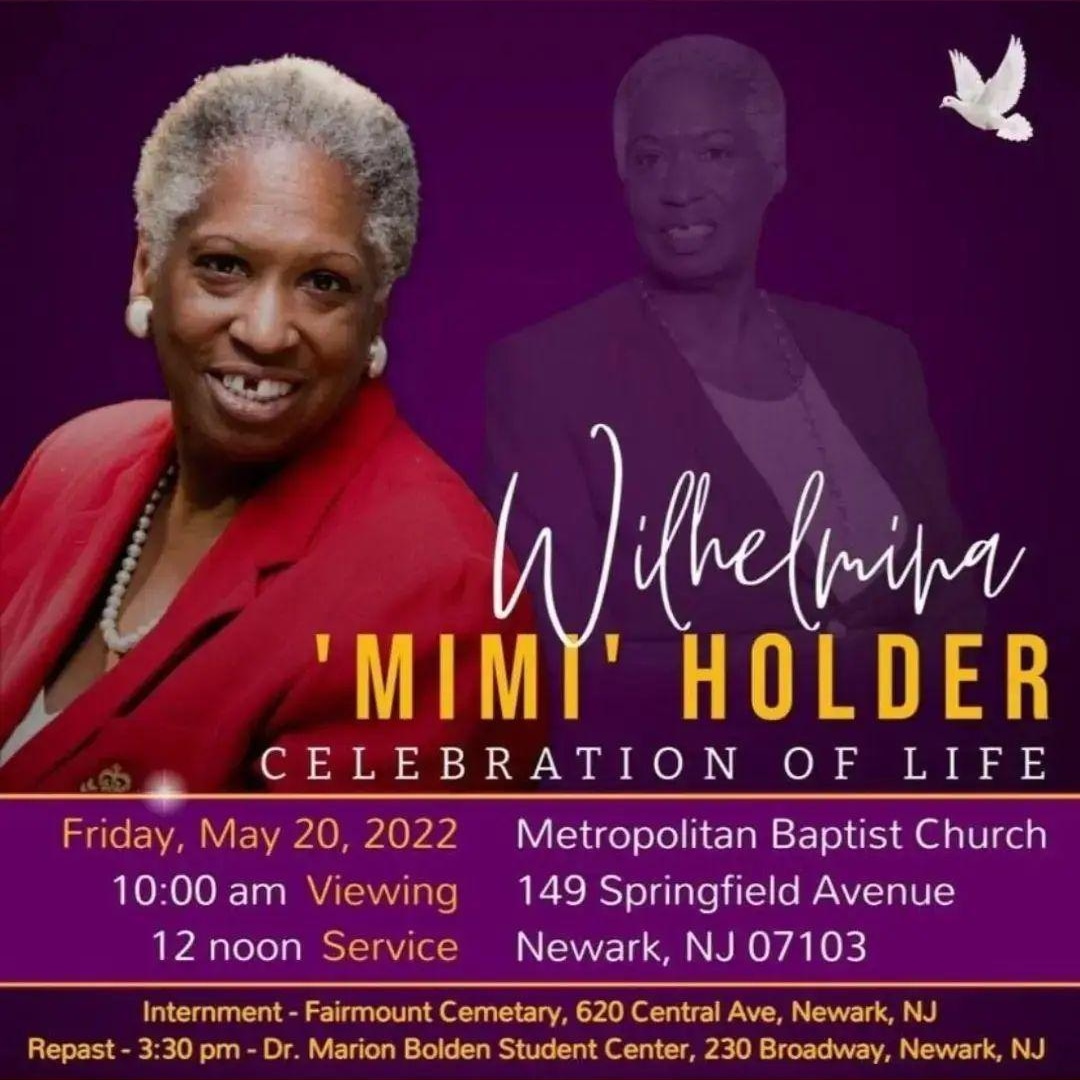
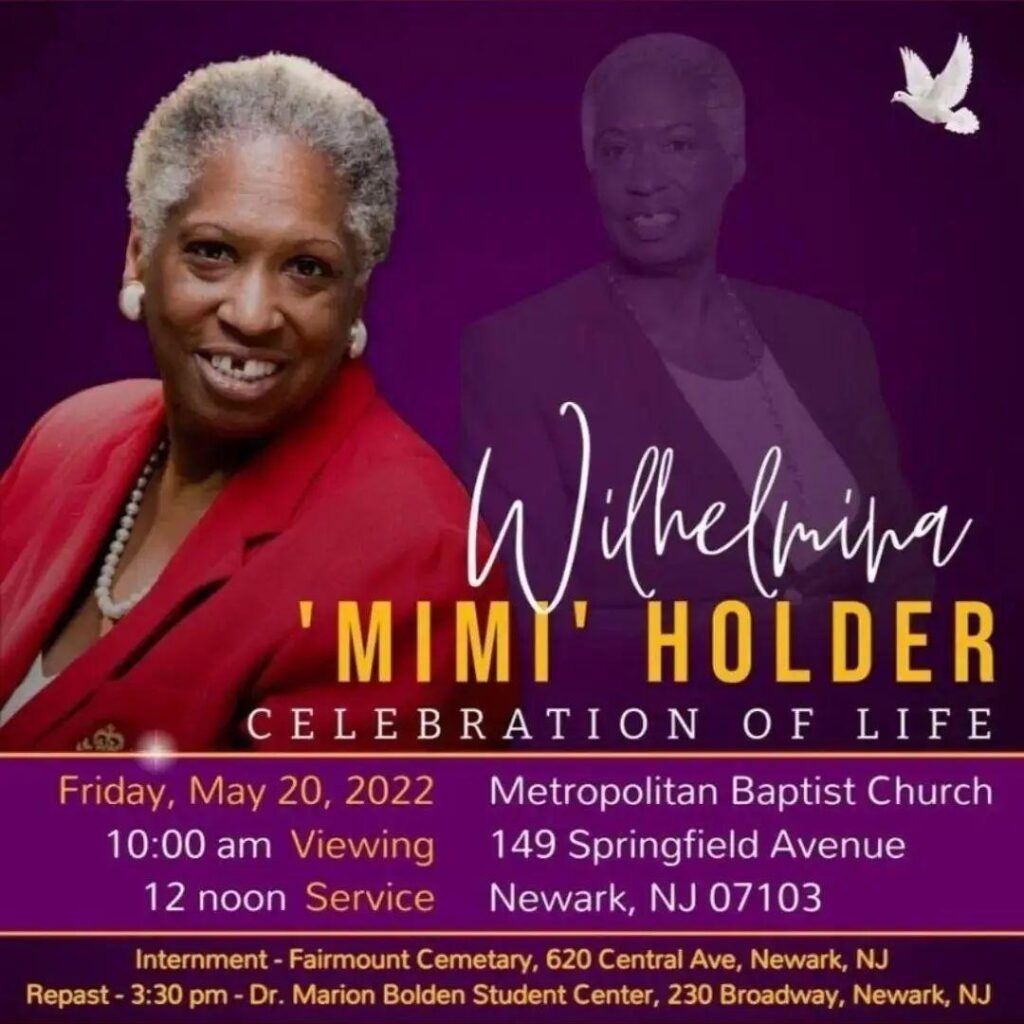
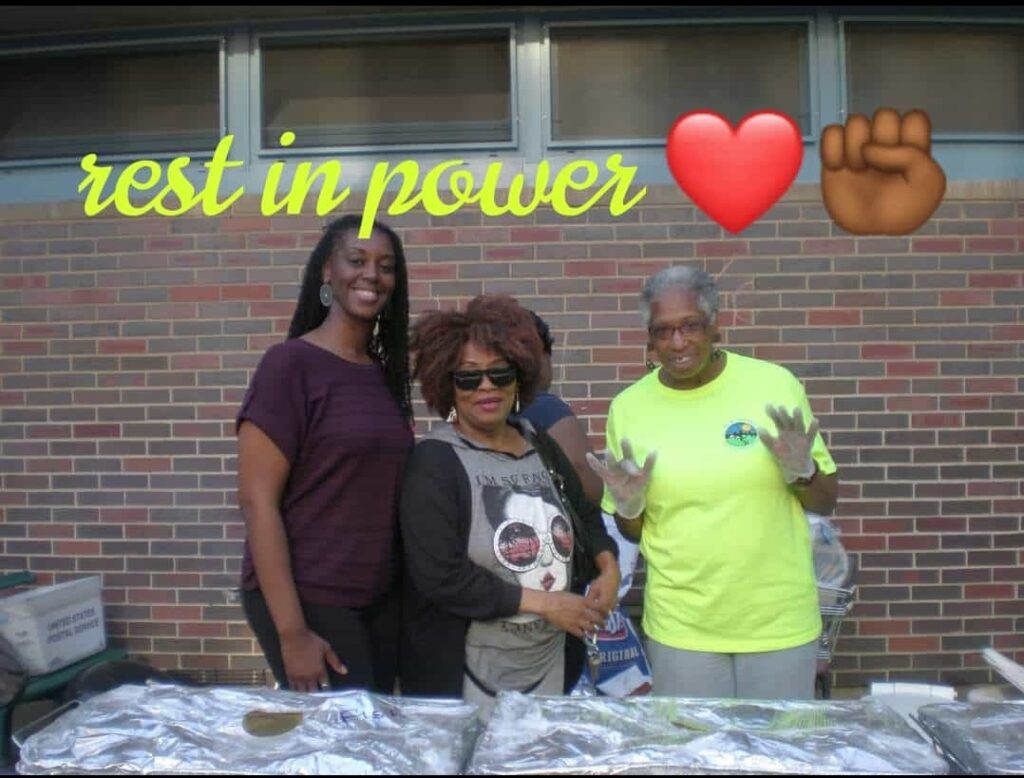
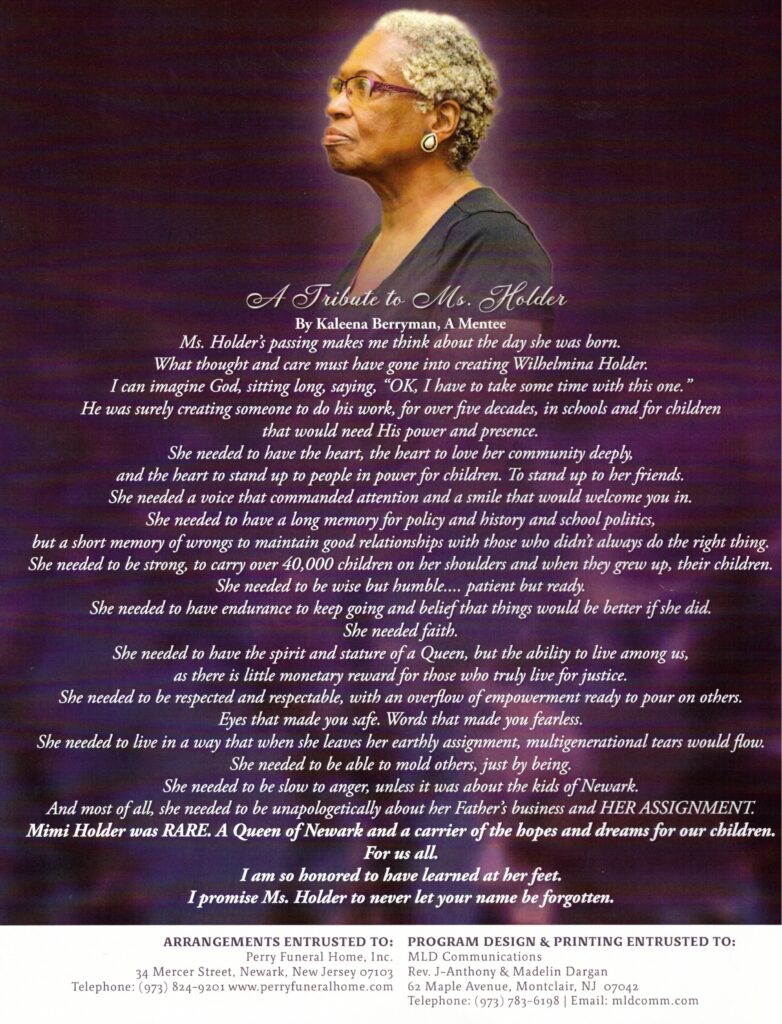
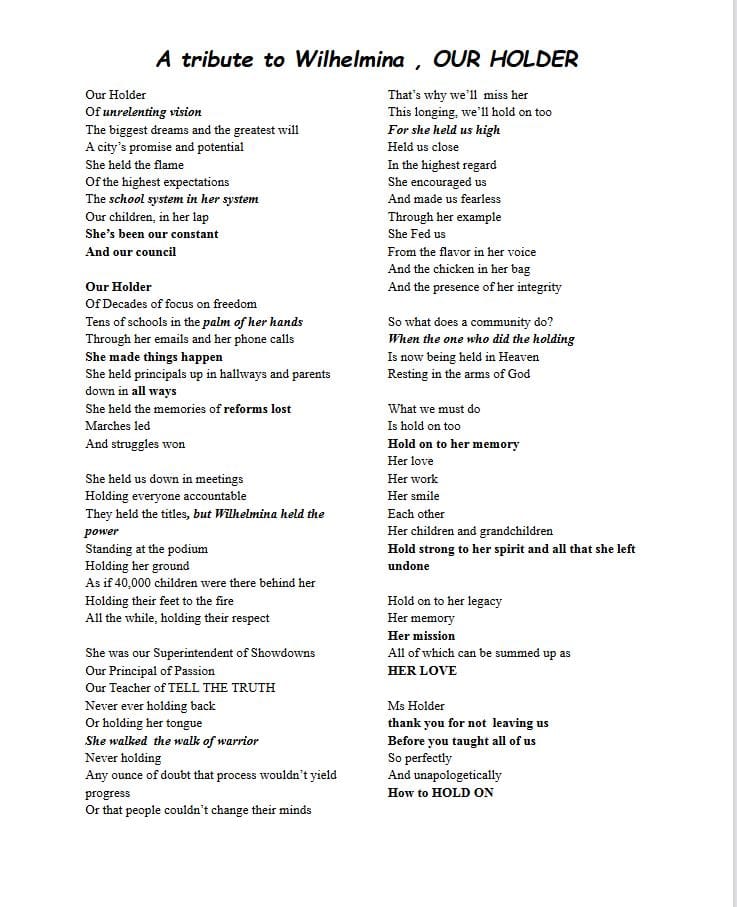
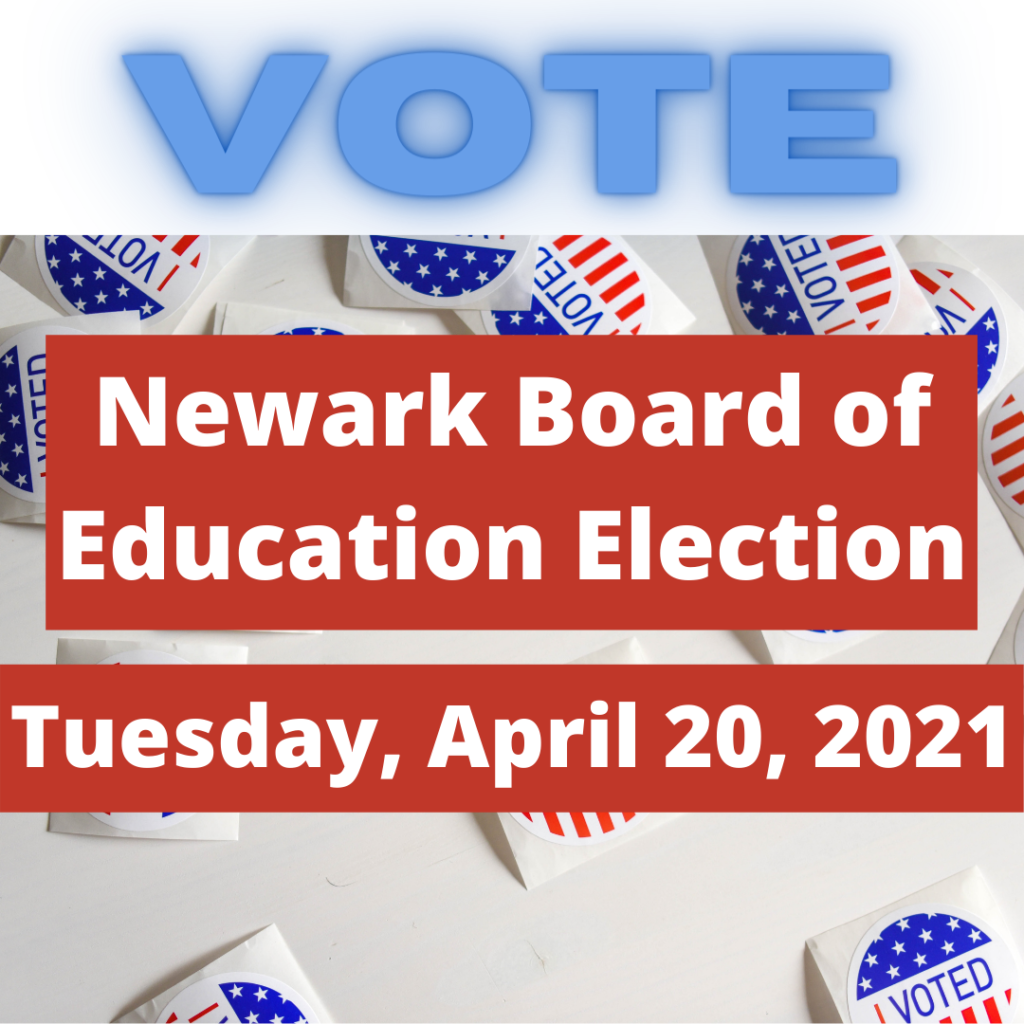
Check me out on All Politics R Local July 24, 2020